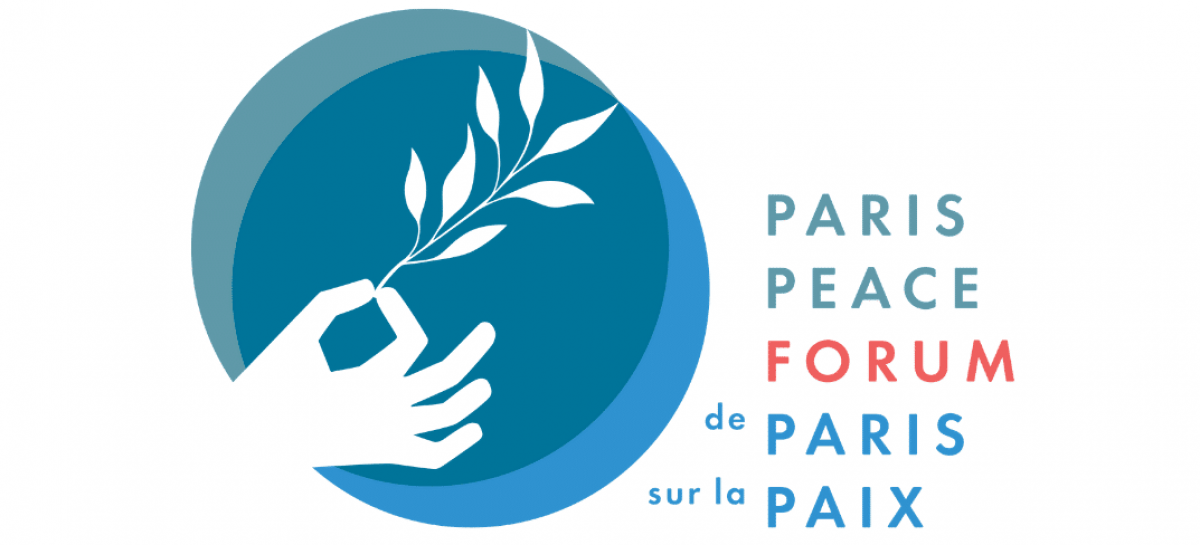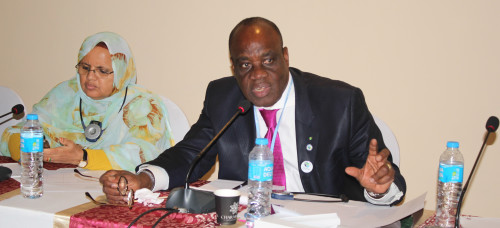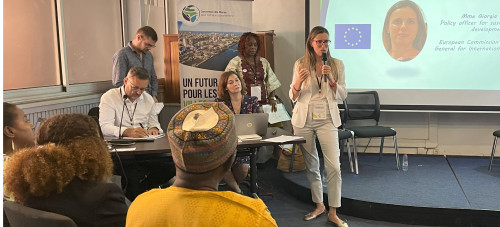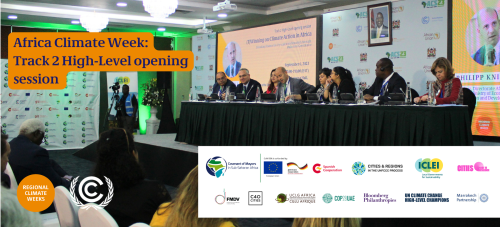A sustainable future for African cities
Published: 10 Nov 2020

As part of the Paris Peace Forum held from November 11th to 13th, the Agence Française de Développement (AFD) will present the Covenant of Mayors in Sub-Saharan Africa (CoM SSA). This initiative, launched by the European Union in 2015, brings together 237 cities in sub-Saharan Africa with a single goal: to identify concrete solutions for low-carbon development, resilient to the effects of climate change.
Africa’s urban population is expected to triple to 1.3 billion by 2050. Despite the fact that Africa is one of the continent’s most vulnerable to climate change, and contributes barely 4% to causing it, its cities receive only 3% of global climate financing.
Conflict and Rural Exodus
In many African cities, urban growth appears out of control. “Bangui is going through a very difficult military and political post-crisis period. It’s on the receiving end of a massive rural exodus and a huge influx of displaced people. Its population has already grown from 500,000 to 2 million in just a few years and is expected to quadruple by 2050”, says Bangui Mayor, Emile-Gros-Raymond Nakombo.
Nakombo, a 63-year-old economist, has seen entire generations of compatriots flee violence by armed groups in the North of the country. These Central Africans were not able to attend school during the conflicts that have rocked the country in recent decades, and they come to Bangui in search of safety and work. “Local authorities are mini governments, and we struggle on a daily basis to make the city hold together”, says the Mayor, who is fighting on all fronts.
What can be done to cope with this out-of-control urbanisation when public services, infrastructure, and investment are lacking?
To develop urban services that promote a sustainable future, decisive levers for action do exist. These include the global momentum for an energy transition, networks of cities that share many similar issues, and the significant financing being mobilised for climate issues.
Supporting local authorities in the energy transition
In the fight against climate change, “it’s in cities that we find the most important levers, whether it’s energy consumption of buildings or urban transport” says Mathilde Bord-Laurans, Head of AFD’s Energy Department. “Energy transition in cities is an innovative approach that’s complementary to and in line with the usual ones applied to urban development, employment, and sub-national planning.”
It’s in response to these challenges that the European Union (EU) launched the Covenant of Mayors in Sub-Saharan Africa (CoM SSA) at the COP21 in 2015, based on the model of the Covenant of Mayors for Climate & Energy in Europe. This bottom-up approach has already proven successful.
The CoM SSA initiative works with African cities in their energy and climate transition through three pillars:
Planning support: development of Sustainable Energy Access and Climate Action Plans (SEACAPs),
Project development: urban infrastructure project support, and
Knowledge exchange and partnerships: city-to-city/regional partnerships and exchanges
At the same time, it promotes coherence among international commitments, the Nationally Determined Contributions (NDCs), and the Sustainable Development Goals (SDGs). Today, CoM SSA supports local authorities in urban planning, access to energy, reduction of greenhouse gas emissions, and adaptation to climate change.
A long-term vision
Joining the CoM SSA initiative means “making a political commitment to develop the city, all the while fighting climate change and providing access to sustainable energy”, says Emile-Gros-Raymond Nakombo. Each city thus adheres to building a long-term vision, detailed into ambitious, measurable, and planned action objectives. In Bangui, in line with the CoM SSA approach, this takes the form of the Sustainable Energy Access and Climate Action Plan (SEACAP) endorsed by the Central African government.
One of the most important aspects of this plan is the creation of a waste treatment plant, which the Mayor hopes will also create jobs for young people in the circular economy. “EU funding has made it possible to conduct research that has raised awareness among the government and the population. There’s a realisation, for example, that it’s important to protect our forest heritage and that our domestic wood consumption poses a problem”, says Emile-Gros-Raymond Nakombo.
Expanding partnerships, expanding projects
Through a secretariat and a help desk for cities, CoM SSA is carrying out significant work in political advocacy, the sharing of good practices, and capacity building. This can take the form of visits, training, technical support, dissemination of studies, and other means. The programme has a network of 237 cities of all sizes in 36 countries across sub-Saharan Africa, receiving various levels of support, from light-touch technical assistance to deep-dive project support. That represents approximately 85 million people.
In connection with the Global Covenant of Mayors, CoM SSA seeks to expand partnerships—both regional and between cities—and also to further develop actions that lead to concrete achievements. CoM SSA thus has a goal of stimulating new projects, especially in infrastructure that meets local needs in sustainability, such as renewable electricity production, integrated waste management and water treatment, energy efficiency in buildings, public lighting networks, electric- or biogas-powered transportation, and others.
Towards a social and climate transition
Since 2019 CoM SSA has received €44 million in financing from the European Union, €1.5 million from the German Ministry for Economic Development and Cooperation (BMZ), and €1 million from the Spanish Agency for International Development Cooperation (AECID). It aims to raise projects to a level of maturity that will enable them to comply with the international debt repayment criteria applied by lenders. AFD, Expertise France, AECID and the Deutsche Gesellschaft für Internationale Zusammenarbeit (GIZ) have come together as implementing partners of the programme.
“With its European partners, AFD is well placed to take action in this phase of the initiative, as it has a long history of commitments and projects at the national level”, says Mathilde Bord-Laurans. “We are in a position both to provide financial resources and to help mobilize national and international investment to implement the action plans and carry out urban infrastructure projects, with a view to making them and the jobs created by them sustainable.” She also notes that “although the challenges of transition are shared by all the cities of the world, the investment capacities of African local authorities are more limited: cities often need the State to finance their investment projects that are the most structuring.”
CoM SSA, with its potential to mobilize €160 million for climate and energy projects and to reduce CO2 emissions by 220,000 tons, seeks to be a catalyst for local action on climate issues in sub-Saharan Africa. In doing so, it works for an equitable social and climate transition.
The Covenant of Mayors in Sub-Saharan Africa has been selected to participate in the Paris Peace Forum on November 11, 12, and 13. On Friday November 13, at 12:00pm (CET), AFD, one of the CoM SSA partners, will present the initiative at the event.





